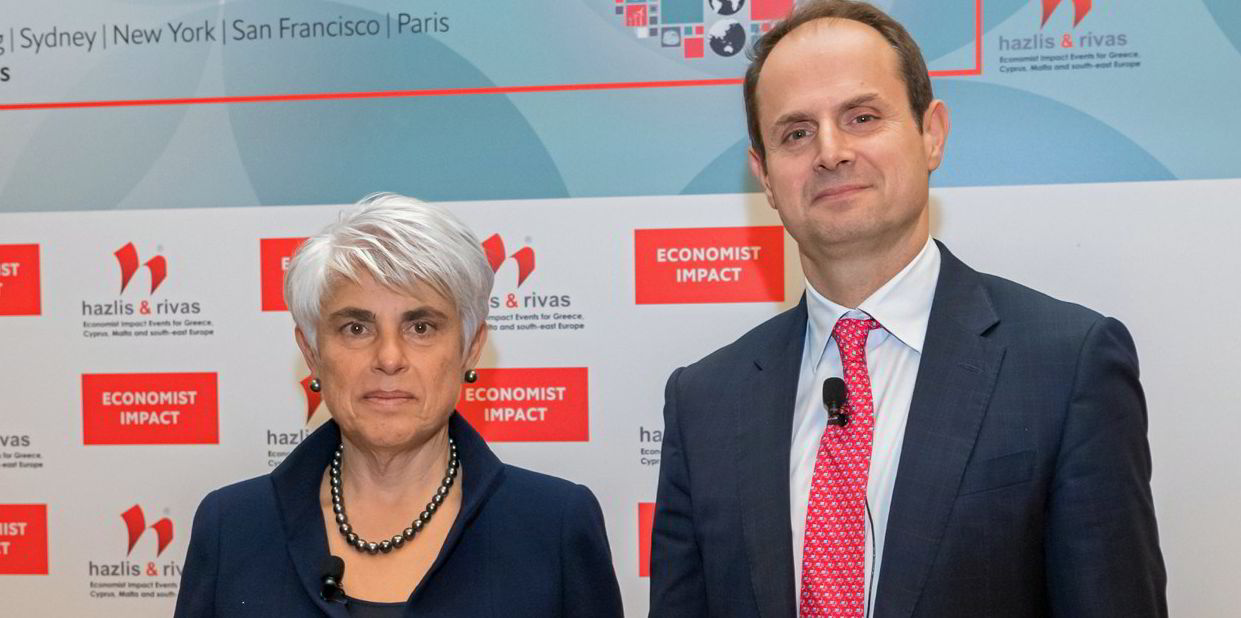Disruption in the Red Sea and Gulf of Aden poses less of a challenge for supply chains than the Covid pandemic, according to Angeliki Frangou.
“It’s an inflationary problem, but a solvable problem,” the major Greek owner told an Economist conference in Athens, commenting on whether the Houthi crisis and its impact on shipping is a threat to the world economy.
Global vessel supply dropped by about 5%, elaborated the principal of the Navios group shipping empire.
“It’s not as severe as what we experienced after the pandemic, where the need for goods was immense and supply chains were disrupted — it’s less,” Frangou said.
“I’m not saying it’s insignificant — it’s inflationary but I think it’s manageable.”
Another Greek shipping player speaking on the same panel expressed a little more concern.
Considering all other geopolitical disruptions around the world, any additional, incremental deterioration makes things worse, argued Jerry Kalogiratos, chief executive of Capital Product Partners.
“It’s cumulative,” he said.
“It’s like taking out capacity from a glass of water — the more it’s empty, the less available capacity is out there, and then the more it is likely to see a freight rates and charter rates hike.
“Unless this problem is solved fairly soon, we’ll see tighter and tighter markets.”
Asked whether that should include military intervention to help vessels cross the Bab el-Mandeb strait off Yemen, Kalogiratos replied: “If the solution is through military support, so be it. But I don’t think it’s a problem that is going to be solved very easily.”





